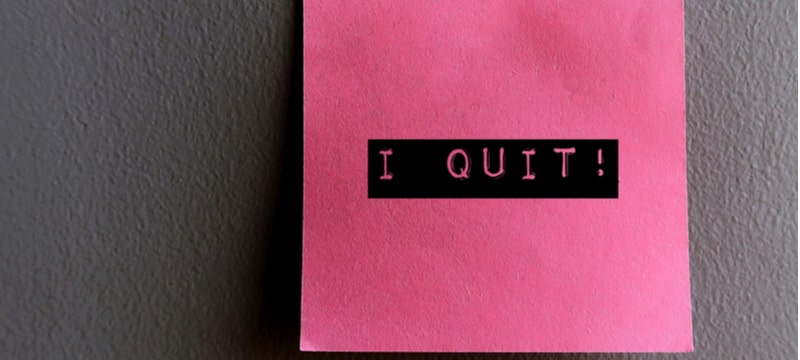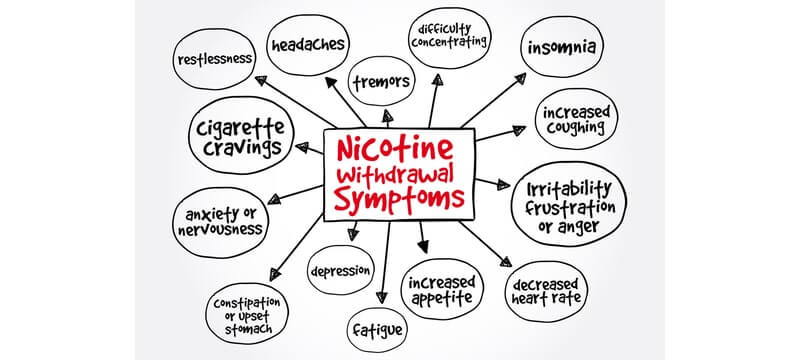
Most companies selling CBD, and advocates for the product, claim it can help with numerous health issues, including addiction. What happens when you google ‘can CBD help with addiction?’ Unsurprisingly, it’s companies with CBD in their name at the top of the search list. They need to push their products to the widest possible market.
But is it true to say CBD may help with the cravings of addiction and withdrawal symptoms? As with all research into CBD, there’s very little available evidence. However, there has been some independent research on using CBD for addiction and withdrawal. Could it become an option for health professionals to suggest CBD for withdrawal symptoms?
Table of Contents
Can CBD be a player in the substance withdrawal market?
It can be argued that replacing one drug with another is counter-productive, but methadone has been used to treat heroin addiction for decades. Now research indicates that CBD could be useful in treating addiction.
This is interesting because, apart from a very few instances, CBD is not medically approved. It is only recognised as a health supplement, not a ‘drug’. Therefore, a substance which in many countries is legal to buy, is relatively inexpensive, and is not controlled by big pharma, could support millions of people in withdrawal. That’s a little ironic when it’s so closely associated with the cannabis plant. After all, it’s still illegal in the UK and Ireland to possess cannabis for personal use.
Withdrawal from narcotics such as opioids or illegal drugs is usually treated professionally. People are guided through withdrawal, and the subsequent cravings, with reduced doses or alternative medication. But choosing to quit socially acceptable drugs like tobacco and alcohol tends to mainly involve willpower. Maybe CBD can help here?
Giving up cigarettes and alcohol
Two of the biggest addictive substances worldwide – and available to all adults at any local shop – are tobacco and alcohol. These are substances that people tend to give up by themselves. Medical withdrawal from alcohol, using drugs, is an option; however, it is usually reserved for people with a serious dependency.
Most people who recognise their alcohol consumption as a problem are offered other options. These include self-help, counselling, attending Al-Anon meetings, and cognitive behavioural therapy (CBT).
For tobacco withdrawal, help is much more tangible. There are plenty of over-the-counter anti-smoking aids, such as nicotine patches, gum, mints or e-cigarettes. These are often subsidised, available on prescription, or even free from health clinics.
Smoking has certainly seen huge reductions following damning evidence regarding its impact on health. According to a survey, 14.1% of the UK population were smokers in 2019 compared with 45% in 1974. That’s a whole lot of quitters!
Can CBD help people give up smoking?
It’s believed that hemp cigarettes may be beneficial for people giving up regular smoking. Of course, it replaces one cigarette with another, but the hemp version has no nicotine or tobacco. Therefore, you get the ‘pleasure’ and familiarity of smoking without the obvious health risks.
They are made from hemp, which is non-addictive. Plus, many claim that the CBD in hemp calms the nervous system, minimises cravings and provides a sense of relief. That calming effect may be an answer to the cravings caused by nicotine withdrawal.
However, the act of smoking is still considered dangerous by medical practitioners. Vaping is extremely popular for smokers looking to quit but many vape juices contain nicotine. People trying to give up smoking may help themselves further by turning instead to CBD oil, or a CBD spray. These can be taken whenever nicotine cravings kick in.
These products are absorbed through the mouth lining so don’t work as fast as a cigarette. But the effect is sustained and may induce a sense of calm and relief for hours. With no serious side effects, there is very little danger of taking too much CBD in this situation.
Learn more about: CBD to Quit Smoking
The cannabis conundrum
In a further twist, research has shown that CBD can help people withdraw from cannabis dependency. Cannabis connects with the CB1 and CB2 receptors in the brain, to alter perceptions of mood and pain.
CBD doesn’t bind to these receptors in the same way but produces a similar effect. Therefore, it behaves like a drug, supposedly improving mood and reducing pain, but without damaging consequences or a psychoactive ‘high’. Cannabis withdrawal may be helped by a compound found in cannabis!
A review of evidence published in 2015 established that “some preliminary data suggest that [CBD] may be beneficial in cannabis and tobacco addiction in humans.”
CBD for alcohol withdrawal
Anyone wanting to detox from a serious alcohol dependency should take medical advice and get help with the process. It is physically and emotionally demanding and can be dangerous if undertaken without supervision.
Many people who consider themselves social drinkers, or without a ‘habit’, often think about stopping. We’ve probably all said “never again” the morning after one too many. Recent times of pandemic have seen a huge surge in supermarket alcohol sales.
In 2020, 40% of UK people said their alcohol consumption had gone up during the pandemic. The main reasons cited were loneliness, stress, and depression.
How CBD helps combat withdrawal symptoms
Even people on this ‘lower’ end of alcohol consumption will feel some physical and emotional symptoms from cutting down. These include:
- Irritability
- Sleep disturbance or insomnia
- Anxiety
- Restlessness
- Cravings
CBD consumers believe it creates a sense of calm, eases everyday stress, and encourages deeper, lengthier sleep. CBD might, therefore, be a valuable help as people try to reduce their drinking habits.
Research into CBD tends to support this claim. However, most studies to date examining the benefits of CBD for alcohol withdrawal have been on animals. Some of these studies report that the animals given CBD showed:
- Reduction in alcohol consumption (when it could be self-administered)
- Reduction in relapse to alcohol
- Diminished drug-seeking behaviour
- Less anxiety
- Fewer impulsive tendencies
There is also evidence that CBD interacts with the endocannabinoid system to alleviate brain and liver damage. Hopefully, similar research will be undertaken in human trials, but it supports anecdotal claims that CBD has wide-reaching health benefits.
CBD as a support for other addictive behaviour
Research to date, even though limited and small scale, does appear to support the use of CBD for substance withdrawal. Studies have also focused on its benefits for heroin and opioid withdrawal. Given the epidemic of opioid abuse (particularly in the USA) and the destruction these addictive drugs cause, a healthy alternative to support withdrawal can’t come soon enough.
In a world of self-help advice, many people believe they have an addiction. It may not be a clinical addiction, but it could relate to excessive consumption of, for example:
- Social media
- Screen time or gaming
- Online shopping
- Junk food
- Sugar
- Gambling
Could CBD support people to reduce their often physically, emotionally and financially damaging habits? It’s a long shot but given CBDs ever-widening reach in the health and wellness sector, it might be a possibility.
Summary
CBD is recognised as impacting the body in many beneficial ways. Millions of people take CBD in the belief that it helps them combat chronic pain, mood swings, anxiety, and inflammation.
It may be worth considering as a supplement because CBD has a reputation for reducing stress and worry. Claims are made that it can calm the chattering mind and generally ‘take the edge off’ difficult days or situations. This is a benefit that may be of use for anyone trying to address addictive behaviour.
Further research is very much needed, and human trials into its use for substance abuse will be awaited with interest. In the future CBD could be a very important, non-addictive tool in fighting addiction.





